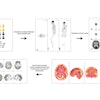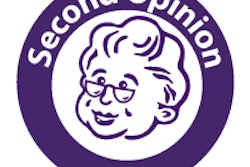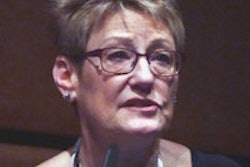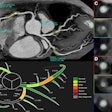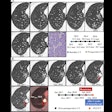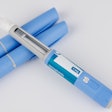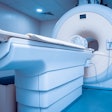The U.S. Centers for Medicare and Medicaid Services (CMS) has published additional details about the discussion topics it plans to address in an April 30 advisory committee meeting on reimbursement for CT lung cancer screening.
The agency's Medicare Evidence Development and Coverage Advisory Committee (MEDCAC) meeting will convene at its Baltimore headquarters as part of the evaluation of whether CT lung screening is suitable for Medicare reimbursement. The initiative was spurred by the National Lung Screening Trial (NLST) finding that screening can reduce lung cancer deaths by up to 20%.
CMS said it is particularly interested in evidence that helps identify eligible Medicare patients who are most likely to benefit from screening using low-dose CT (LDCT). It is also interested in evidence that speaks to the optimal frequency and duration of screening, as well as characteristics of healthcare providers that might optimize potential benefits and minimize harms.
Last December, the U.S. Preventive Services Task Force (USPSTF) recommended annual lung cancer screening with low-dose CT for adults ages 55 to 80 years who have a 30-pack-year smoking history and currently smoke or have quit within the past 15 years. Exceptions to the recommended screening paradigm include smokers who have another medical problem that substantially limits life expectancy, or those who cannot or do not wish to undergo curative lung surgery.
In comments published last week, CMS noted that just 26.6% of participants in NLST were ages 65 to 74 years, and the extension of the USPSTF recommendation to adults ages 75 to 80 "was based primarily on modeling with no data from NLST."
CMS also provided a series of questions that will be voted on by panelists at the meeting:
- How confident are you that there is adequate evidence to determine if the benefits outweigh the harms of lung cancer screening with LDCT in the Medicare population?
- How confident are you that there is adequate evidence to determine that screening in asymptomatic high-risk adults older than 74 years of age improves health outcomes?
- How confident are you that there is adequate evidence to determine that annual screening beyond three annual LDCT screens improves health outcomes?
- How confident are you that there is adequate evidence to determine that a lung cancer screening program implemented outside a clinical study improves health outcomes?
- How confident are you that the harms of lung cancer screening with LDCT (at an average effective dose of 1.5 mSv) will be minimized?
- How confident are you that clinically significant evidence gaps remain regarding the use of LDCT for lung cancer screening in the Medicare population outside a clinical trial?
More information about the discussion topics and meeting attendance can be found here.



